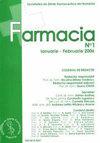ANTIVIRAL ACTIVITY OF ORIGINAL FLAVONOIDS-CONTAINING PHYTOPREPARATION AGAINST HUMAN ALPHAHERPESVIRUS 2, HEPATITIS C SURROGATE VIRUS AND TRANSMISSIBLE GASTROENTERITIS CORONAVIRUS
IF 1.4
4区 医学
Q4 PHARMACOLOGY & PHARMACY
引用次数: 0
Abstract
This study evaluates the antiviral activity of a complex phytopreparation consisting of alcohol tinctures of Filipendula vulgaris , Petroselinum crispum , Apium graveolens radices, Galium verum , Linaria vulgaris herbs and Calendula officinalis flowers. The phytopreparation was tested on in vitro models of human alphaherpesvirus 2 (HHV-2), hepatitis C surrogate virus (bovine viral diarrhoea virus, BVDV) and transmissible gastroenteritis virus (TGEV). The phytopreparation solution demonstrated antiviral activity against all three viruses. The phytopreparation solution is an active inhibitor of HHV-2, BVDV and coronavirus (TGEV) replication with a selectivity index of 80, 320 and 160, respectively. Animal studies showed that the phytopreparation solution (1:100 dilution), when used as a combined treatment regimen ( per os + application), delayed the onset of guinea pig genital herpes first symptoms and reduced the time of disease in vivo . The phytopreparation solution had an antiherpetic therapeutic action similar to that of acyclovir (a reference antiherpetic drug). The induction of αIFN and inhibition of RNA and DNA synthesis were suggested mechanisms of the antiviral action of the phytopreparation complex.含黄酮类化合物的原始植物制剂对人类阿尔法疱疹病毒 2、代丙型肝炎病毒和传染性胃肠炎冠状病毒的抗病毒活性
本研究评估了一种复方植物制剂的抗病毒活性,该制剂由菰、芹菜、芹菜根、高丽参、扁桃草和金盏花的酒精酊剂组成。该植物制剂在人类阿尔法疱疹病毒 2(HHV-2)、丙型肝炎代用病毒(牛病毒性腹泻病毒,BVDV)和传染性胃肠炎病毒(TGEV)的体外模型上进行了测试。植物制剂溶液对这三种病毒都具有抗病毒活性。植物制剂溶液是 HHV-2、BVDV 和冠状病毒(TGEV)复制的活性抑制剂,其选择性指数分别为 80、320 和 160。动物实验表明,植物制剂溶液(1:100 稀释)作为联合治疗方案(口服 + 涂抹)可延缓豚鼠生殖器疱疹首发症状的出现,并缩短体内发病时间。植物制剂溶液的抗疱疹治疗作用与阿昔洛韦(一种抗疱疹参考药物)相似。αIFN的诱导以及RNA和DNA合成的抑制是植物制剂复合物抗病毒作用的机制。
本文章由计算机程序翻译,如有差异,请以英文原文为准。
求助全文
约1分钟内获得全文
求助全文
来源期刊

FARMACIA
医学-药学
CiteScore
2.40
自引率
50.00%
发文量
59
审稿时长
6-12 weeks
期刊介绍:
FARMACIA publishes original research papers, invited topical reviews and editorial commentaries and news, with emphasis on conceptual novelty and scientific quality. Main research areas are focused on: pharmacology, toxicology, medicinal chemistry, biopharmacy, drug design, drug delivery, personalized medicine, nanostructures, nutraceuticals, biochemistry and biotechnology. Manuscripts submitted to the Journal are only accepted after the peer review precess. The papers should have not been published in any other journal. The recommendations of the Declaration of Helsinki, for humans, and the International guidelines as accepted principles for the use of experimental animals should be followed.
 求助内容:
求助内容: 应助结果提醒方式:
应助结果提醒方式:


